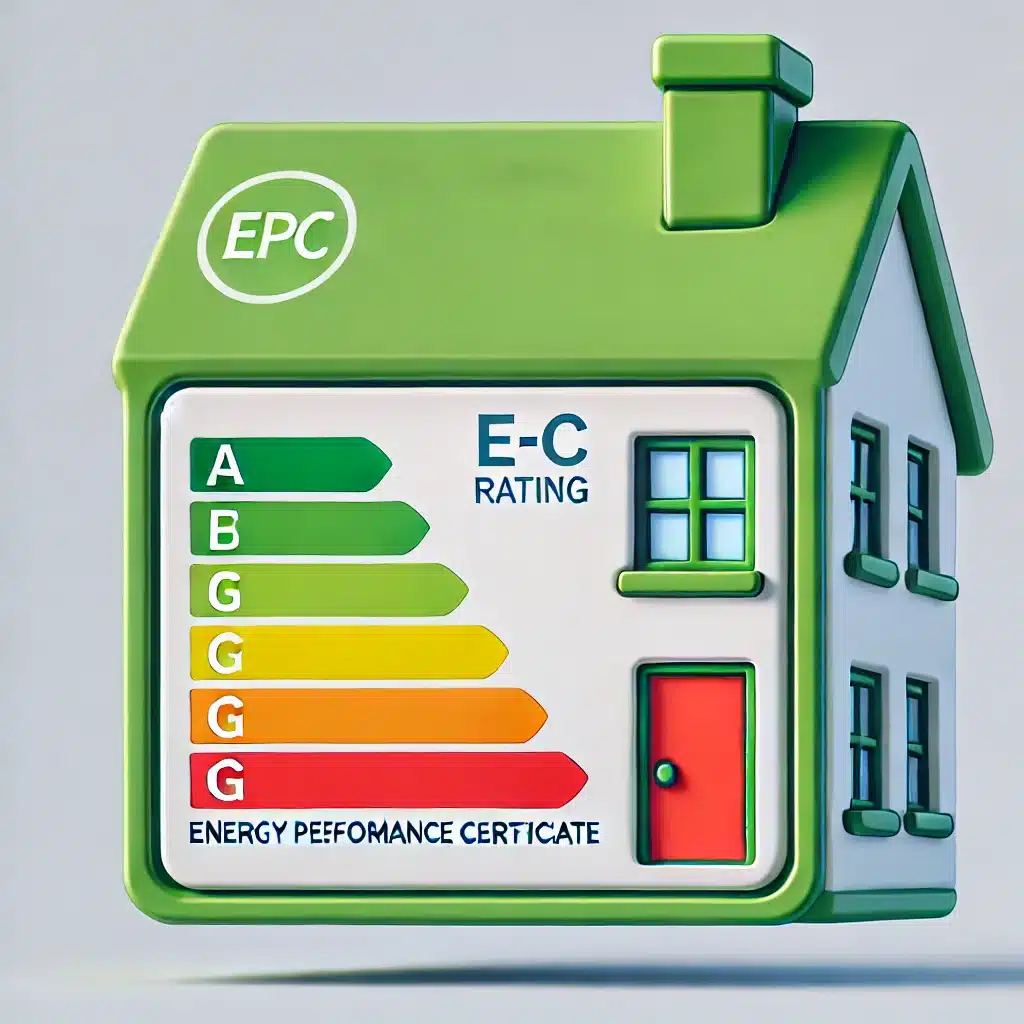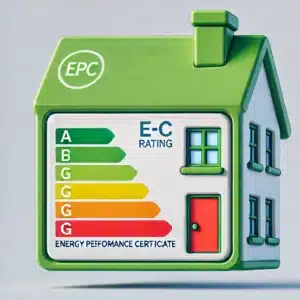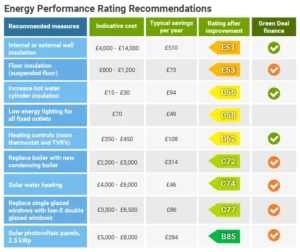 The Complete Guide to EPC for Landlords in 2024
The Complete Guide to EPC for Landlords in 2024

As a landlord, you know that staying ahead of regulations is essential, and few topics are as critical as EPC regulations for landlords in the UK. This isn’t just about ticking boxes; it’s about making sure your rental property meets the minimum energy efficiency standards, attracting tenants, and potentially increasing your property’s value.
With all the acronyms and legalities involved, energy performance certificates for landlords can seem complex. But it doesn’t have to be. We’ll break down everything you need to know about EPC regulations, their impact, and how you can adapt while keeping costs in check. Ready? Let’s jump in.
Table of Contents:
- What is an EPC and Why Does It Matter for Landlords?
- How Can I Improve My Property’s EPC Rating?
- Financial Aid for EPC Improvements
- Exemptions and Special Circumstances
- Conclusion
What is an EPC and Why Does It Matter for Landlords?

An Energy Performance Certificate (EPC) assesses the energy efficiency of a property, rating it on a scale from A (very efficient) to G (not very efficient). This certificate gives potential tenants insight into the energy consumption (and thus potential cost) of your property.
Why the Fuss About EPC for Landlords?
Aside from being legally required when renting out your property in the UK, a good EPC rating, ideally band C or above, can attract potential tenants. A property with a good EPC rating lets renters know they can enjoy a comfortable living environment without excessive energy bills. Think of it as a green badge of honour for your property.
Do EPC Rules Apply to Me in 2024?
Currently, the minimum EPC rating required for landlords to rent their property is band E or above in England and Wales. This applies to all new and existing tenancies, regardless of when the tenancy agreement was signed. If your property falls below this standard, you won’t be able to legally rent it out until necessary improvements are made and a new EPC assessment is done.
While the proposed changes to make band C the minimum standard were scrapped for now, this could very well change in the future. The government itself aims for a minimum EPC Band C rating for rental properties in England and Wales by 2030.
Why Preparing for Future Changes Makes Sense:
Preparing for higher standards, even if not mandatory today, future-proofs your property. With a good EPC rating, your property stands out in a competitive rental market and has higher chances of achieving a better sale price. If you’re planning on staying in the rental market long-term, proactively Improving Your EPC Rating makes complete sense.
How Can I Improve My Property’s EPC Rating?

Now, the million-dollar question is how can you actually get your property’s EPC rating to a respectable band? Luckily for you, many potential upgrades and improvements can make a world of difference. These efficiency improvements can go a long way.
Upgrade That Boiler.
One of the most effective improvements you can make is replacing an old, inefficient boiler with a newer model, such as gas boilers. Consider this – the Boiler Upgrade Scheme even provides grants of £7,500 towards the cost of swapping your fossil fuel heating for a heat pump. Now that’s something worth considering.
Insulation Is Your Best Friend
Don’t underestimate the power of proper insulation. Making sure your property has sufficient loft insulation and cavity wall insulation can dramatically improve its energy efficiency. It keeps the heat where it should be – inside.
This simple change can lead to a significant improvement in your EPC rating. Solid walls are generally much harder to insulate, so focus on your loft and cavity walls first.
Embrace Energy-Efficient Lighting
You won’t believe how much of a difference simple swaps like changing all your light bulbs to energy-efficient LEDs can make. Not only will your tenants thank you for the lower energy bills, but it also contributes to a better EPC rating for your property.
Don’t Forget Those Windows.
While replacing all the windows in your property might feel like a considerable expense, it’s worth remembering that single-glazed windows are notorious for letting heat escape. Consider double or triple glazing to bump up your energy efficiency and reduce noise pollution.
This can translate to a warmer, quieter, and ultimately, more desirable rental property. Investing in these upgrades can seem pricey at first but it’s an investment that pays off.
This not only boosts your property’s EPC rating but also adds real, tangible value. Tenants these days are more environmentally conscious and prefer living in energy-efficient properties that save on energy costs. trust me, it’s a win-win situation. Plus, there are loads of funding opportunities and grants for landlords that can help with costs.
Financial Aid for EPC Improvements
I know what you’re thinking — all these upgrades sound great, but what about the cost? Improving your property’s energy efficiency doesn’t need to break the bank. There are loads of resources and funding opportunities available specifically for landlords. Don’t believe me? Let’s delve a bit deeper.
Government Schemes and Grants
The UK government is keen on encouraging energy efficiency improvements in domestic properties. Check out their website to find specific information for landlords or explore the Energy Company Obligation (ECO) scheme, which offers help with improvement costs, especially if you have low-income tenants.
The Boiler Upgrade Scheme: Your Chance for a Heat Pump Upgrade.
Remember the Boiler Upgrade Scheme I mentioned earlier? The grant will increase to £7,500 this year to encourage the switch from gas boilers to greener alternatives, such as air source heat pumps or ground source heat pumps.
Taking advantage of this opportunity can greatly reduce the financial burden of making energy-efficient upgrades. You can find out if your property is suitable for a heat pump by getting an EPC report.
Expert Guidance & Financial Planning
Consider booking a consultation with the experts at Ecofurb. They’ll create a tailored retrofit plan that considers your property’s needs, energy goals, and budget. Don’t worry if a full consultation seems too daunting; their online Plan Builder offers a free, preliminary assessment of your property.
Remember the Cost Cap
Don’t stress about breaking the bank with these upgrades. The UK government has a cost cap in place to prevent landlords from facing unreasonable costs to meet EPC requirements. You’ll never need to spend more than £3,500, even if you can’t hit the minimum E rating with those funds.
Exemptions and Special Circumstances
There are certain situations where a property may be exempt from the standard EPC requirements for landlords. Listed buildings, for instance, usually fall under this category as energy-efficiency upgrades might compromise their historical integrity.
Similarly, properties with a planned demolition or temporary structures with a short lifespan may not require an EPC. You can find comprehensive information about exemption criteria on the government website, but always advisable to reach out to your local authority to clarify any queries regarding exemptions specific to your situation.
Conclusion
Understanding EPC regulations and their implications is a must for all landlords. Improving your property’s energy efficiency through thoughtful upgrades doesn’t just ensure compliance with EPC standards for landlords but can actually increase its market value and appeal to prospective tenants seeking comfortable and cost-effective housing.
It’s time to look beyond the legal requirements and consider the wider benefits that investing in energy-efficient upgrades offers for you as a landlord, your property’s value, and of course, happy, comfortable tenants.



